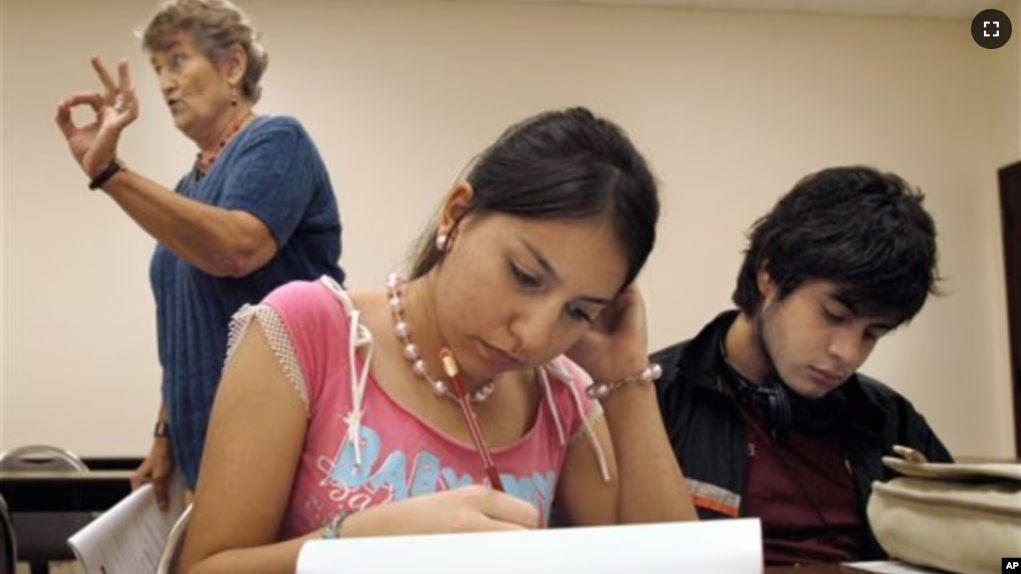From VOA Learning English, this is the Education Report.
Today we continue our series of expert suggestions for academic writing. Our guest is Jennifer Ahern-Dodson, assistant professor of the Practice in Writing Studies at Duke University in North Carolina.
Ms. Ahern-Dodson starts a conversation with both students and professors planning to write a paper or essay. She asks about their earlier writing experiences. Were they negative or positive?
She advises that you are not alone if you have had problems with your writing. She says everyone struggles with writing.
“Writing is hard. All writers struggle at some point. And even if writing has come easily for you, at some point in your work as a student, that eventually you’re going to hit a roadblock. And so part of what I like to get folks thinking about is — besides writing’s hard for everybody – is to really take a moment to think about their past writing experiences. And when the writing is going well, what was happening? When the writing wasn’t going well, what was happening?”
She says most people’s negative writing experiences happened because a very specific formula is required for a paper including an exact length.
“And so they primarily focus on, and worry about, what the final product has to look like, like how many pages for a research essay? Or if it is in the second or third language, you know, punctuation and grammar, like whether it gets communicated in the right language.
“And so focusing on the end makes it really hard to get started.”
Another problem can arise when the need to do well on a paper is extremely important.
“…like a timed essay exam, or a college application essay, or a research paper that is at the end of the semester, and it’s tied to the entire grade for the class. So worrying about what will happen if they don’t do well – get bad grades, don’t get into college — creates, of course, significant anxiety. And that can make it harder to get the writing done.”
Then she and the people she’s helping move to more positive projects. She says usually when writing comes easily, the writers feel they have something important to say.
The teacher advises asking yourself questions. What personal understanding of the subject can you bring to your paper? Why is this subject important? For whom is it meaningful? Who will be reading it?
“…Think about who your audience is, and what it is that you really want to say to them. And what that can do is help you switch from the final product and what it can look like (to) really more on what you have to offer, your particular perspective.”
She says that is an important change for all writers.
And that’s the VOA Learning English Education Report. Coming soon: Jennifer Ahern-Dodson talks about doing research, sitting down to write and sharing your writing with others.
I’m Jeri Watson.
__________________________________________________
Words in this Story
conversation – n. an informal talk involving two people or a group of people
experiences – n. the processes of doing and seeing things and having things happen to you
negative – adj. unpleasant, unproductive
positive – n. pleasant, productive
hit a roadblock – idiom, encountering a situation that blocks one’s progress
audience – n. the people who watch, read, or listen to something
perspective – n. the way you view something; point of view
